Olga Novitskaya is not your typical insurgent. The 54-year old translator lives in an old apartment building in the Cheremushki district of Moscow, and she wants to stay there. The City Council wants Novitskaya, and about 1.6 million others, to move into new high-rise buildings. And that’s set off an unlikely protest movement.
Moscow is undertaking the largest urban resettlement programme in modern history – preparing to tear down more than 4,500 apartment buildings that house approximately one-tenth of the Russian capital’s population. Many residents aren’t happy.
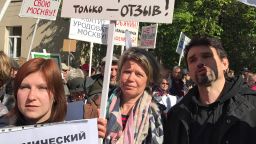
A protest rejecting the programme drew more than 3,000 people over the weekend, according to Moscow police. An NGO that measures crowd sizes, Beliy Schetchik, put the rally at just under 5,000 – a substantial turnout by Russian standards.
It’s the latest in a series of rare demonstrations in Russia, where opposition voices are increasingly stifled. In March, unsanctioned, anti-corruption protests rattled the Kremlin due to their size and sweep. More have been called for next month despite a nationwide ban on such rallies.
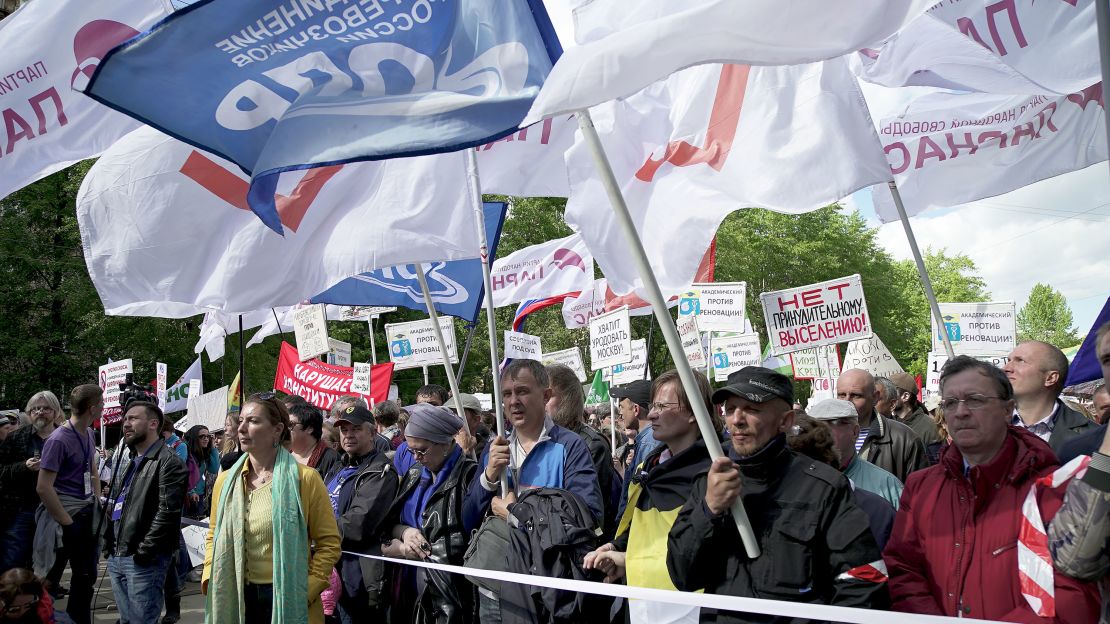
At Sunday’s protest, under the close watch of hundreds of police officers, demonstrators held handmade signs saying “Renovation=Deportation.” They peacefully called for the resignation of the mayor of Moscow.
MORE: Anti-corruption protests continue across Russia
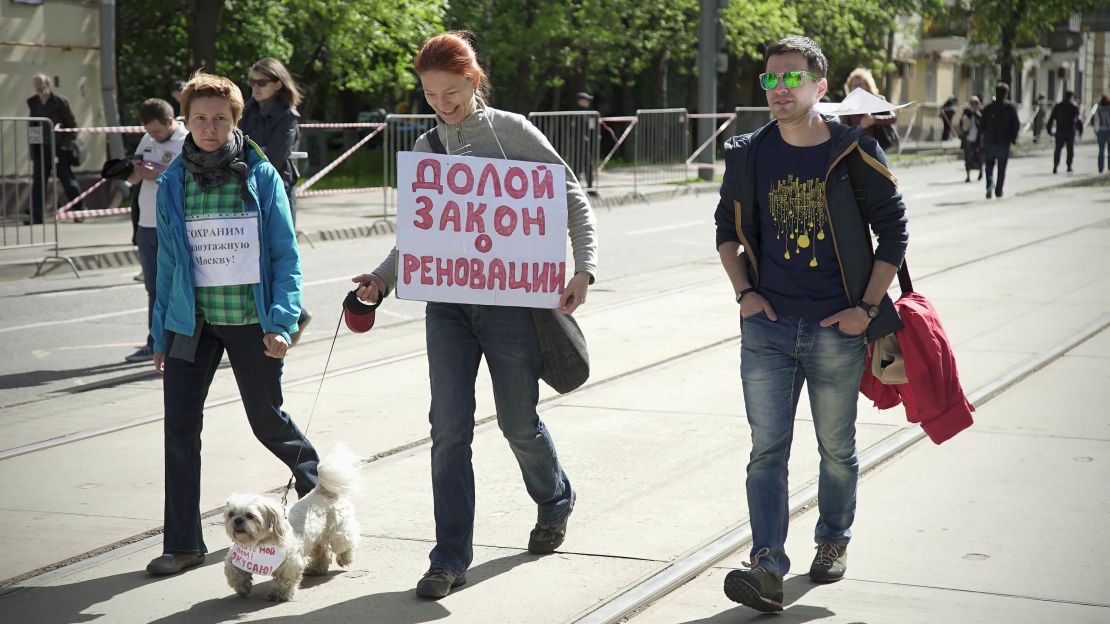
Despite repeated demonstrations against the resettlement programme, protesters like Novitskaya concede that their efforts are unlikely to stop the destruction of their homes.
“At least we want our voices to be heard,” she says, straining to speak over the sound of the loud-speakers.
“I don’t know whether those who make decisions watch TV. I don’t know whether they care. But we should do what we can.”
MORE: Ducks, sneakers and mass arrests: Why are Russians protesting?
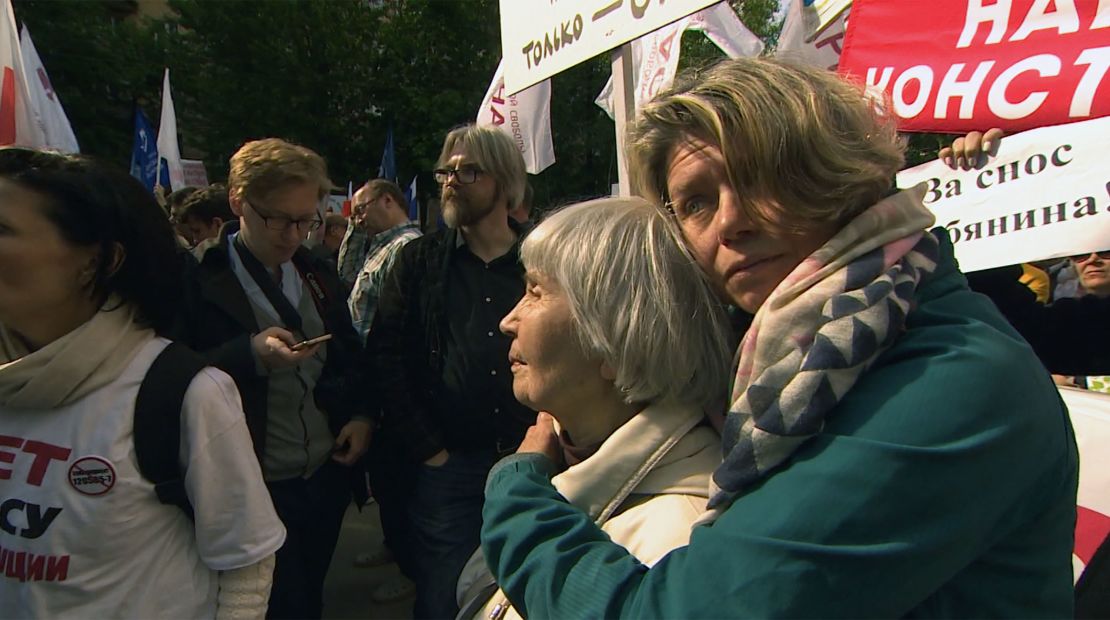
Novitskaya’s five-story, concrete apartment block was built the year before she was born, when Nikitia Khruschev was leader of the Soviet Union.
During his reign, tens of thousands of identical housing blocks mushroomed across the Soviet Union.
He made “the improvement of residential and cultural and social conditions for the working classes” a priority. To this day, the concrete buildings affectionately known as “Khruschevki” evoke memories of the USSR.
A much-loved Soviet musical from 1962 shows a couple celebrating their move to one of the new Khrushchevki of Cheremushki. To a film score composed by Dmitri Shostakovich, the young lovers joyously sing “this room is ours, this apartment is ours.”
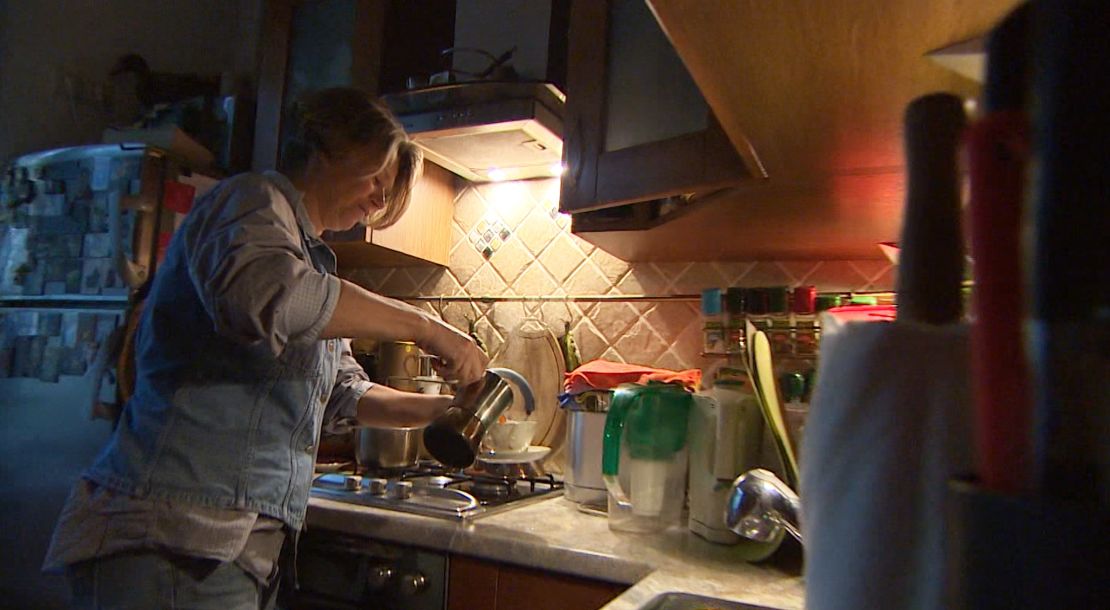
Novitskaya purchased her apartment and moved in 1998. She brought up her daughter there and is visibly upset at the prospect of being forced to leave.
“Either I start playing Joan of Arc, I start fighting, for some common ground or I don’t know what,” she says tearfully.
The buildings are not much to look at – squat concrete walk-ups with notoriously dark stair-wells and crumbling steps. But they are solidly built and have broad green courtyards where trees grow and children play. In many cases residents have occupied their apartments for decades.
The mayor of Moscow, Sergei Sobyanin, says the housing blocks are near the end of their natural life. “Even if we do renovations in these buildings, in 10 to 20 years they will become hazardous housing,” he told the Komsomolskaya Pravda newspaper.
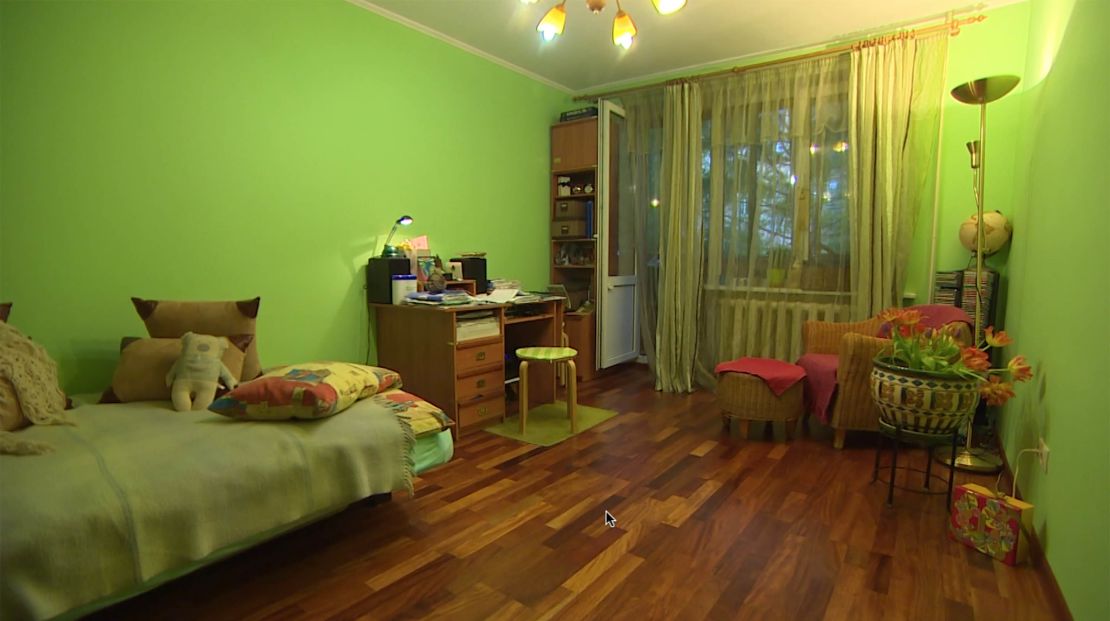
Sobyanin’s office has put a lot of effort into persuading residents they will be better off, promising larger, more modern flats in what the renovation law calls a “comfortable urban environment.”
A city government website advertises photographs of new high-rise housing with modern elevators, security cameras and playgrounds for children. A state channel recently broadcast a half-hour television special during which the correspondent listened as the mayor laid out his plan for urban renewal.
Authorities promise residents would only have to move out of their existing apartment once the contract for a new one is signed, but laws around the relocation are still being revised in Russian parliament.
The whole process will be put up for a vote this month, but residents are wary it will be rigged.
RELATED VIDEO: Geography of Russia protests ‘really stunning’
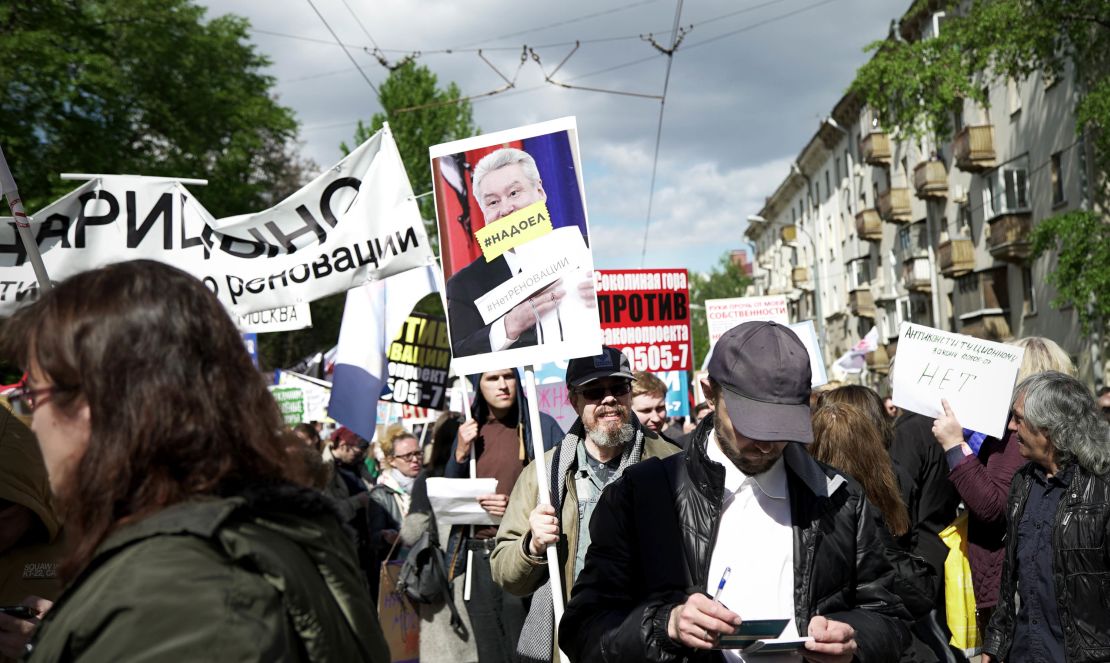
“They give promises but then they say: we have not decided yet,” Novitskaya complains. She is one of many thousands who don’t trust the authorities’ promises.
“I don’t think you should exploit [people’s] greed, their ignorance and their naiveté if you can call it this way.”
The process has divided residents and led to some awkward confrontations.
“I cannot say we were the best friends,” Novitskaya says, “but we were good neighbors.”
Now there is a split: “You can call it a civil war.”
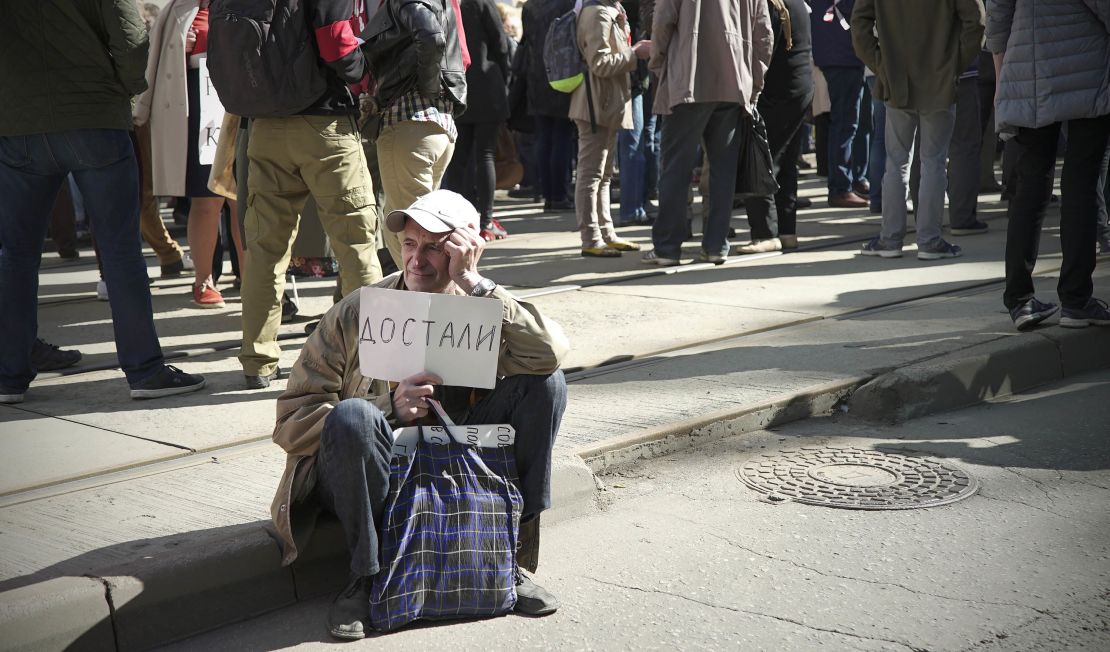
In front of her building during a recent visit, several female residents handed out fliers in favor of the relocation project.
“We don’t want to stay here,” said their leader, a woman named Tatiana Bowman. She insisted that Novitskaya is one of the minority in the neighborhood against the building’s demolition.
“We are tired to live here. It’s in terrible condition…and we would like to leave this house as soon as possible.”
Others complain of damp, tiny kitchens or sewage pipes that leak. They want somewhere new to live.
One middle-aged woman, who declined to be named, said she lived in a dark ground-floor apartment and longed to move into a newer building.
“People against it say the new building won’t be good enough,” she told CNN. “What do they expect to get, a spot in the Kremlin?”
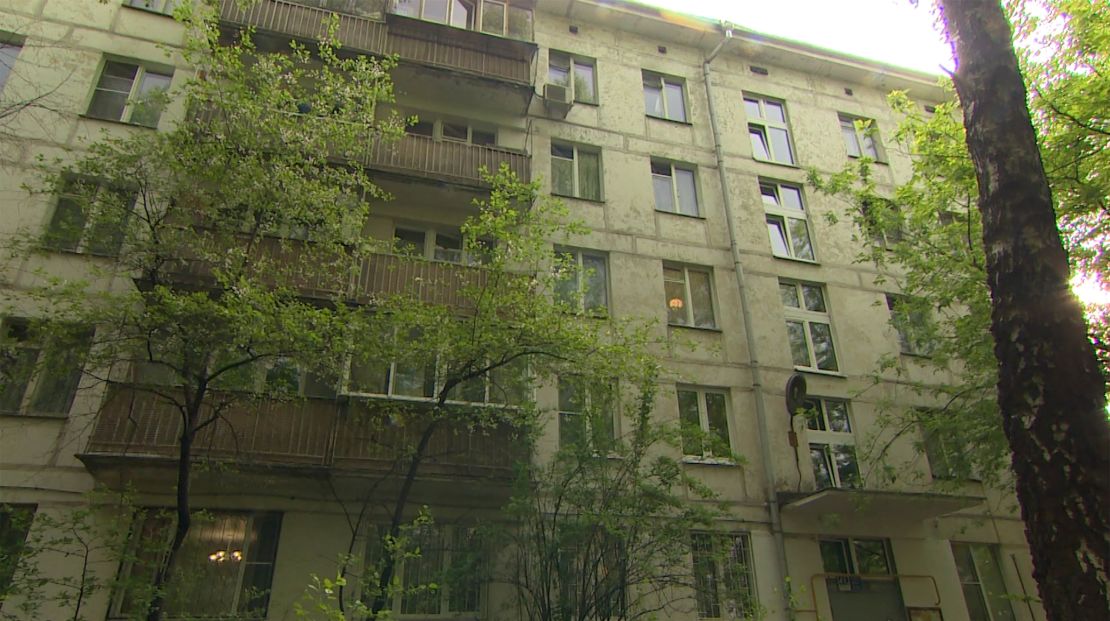
As Moscow has expanded, the land occupied by many Krushchevki has become increasingly valuable. That’s one reason many of their residents want to stay put. Some have spent precious savings buying and refurbishing their homes. They don’t want to be shuffled off to an anonymous high-rise while developers make big profits.
Opponents also worry that the new apartment blocks will be poorly constructed. CNN visited a 20-storey high-rise still under construction to find that tiles on the brand new exterior were already falling off.
Olga Novitskaya – for one – is unimpressed by what’s on offer. “It’s really awful, very low quality…There are no trees.” It would be like living in in ant-hole, she says.
“I want my life to be lived the way I want it to be. I don’t want anyone to think that I am just a figure on a chessboard and they can move me.”

